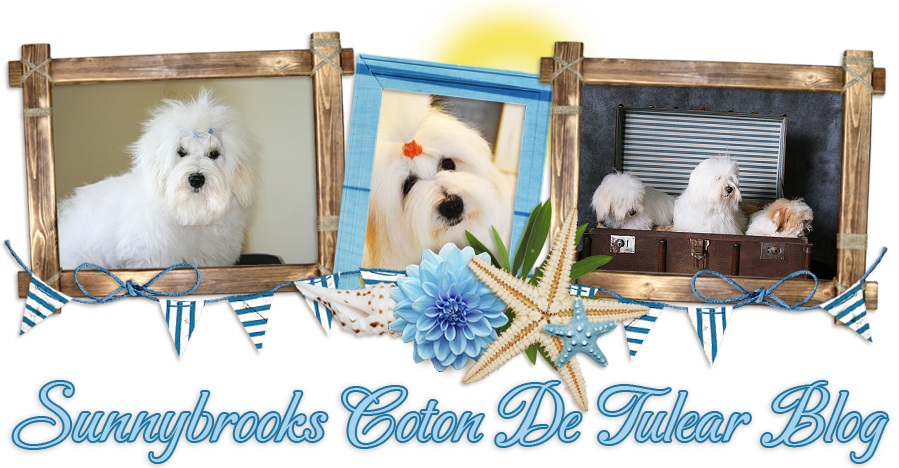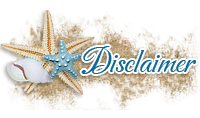Behavior Modification
for Itchy Dogs
Excessive self-licking and chewing can be caused by a medical issue. It can also be a behavioral. problem, a classic example of an obsessive/compulsive disorder. Either way, it's annoying to the dog's human companion, and dangerous to the health of the dog. Here are tips for dealing with dogs who self-lick and chew excessively. To begin behavior modification, determine your dog's stressors and start eliminating them. Make a list of everything you can think that is stresses your dog - even just a little bit, even if the stressors don't seem directly related to the licking. Your list might include thunder, small children, dogs on television, cats, riding in cars, visits to the vet, shock collars, medical issues, and many more. Most owners can identify between 10 and 20 stressors for their dogs.
What is a food allergy?
A food allergy occurs when a dog’s immune system mistakenly identifies a particular food ingredient as harmful. And then creates defensive antibodies to fight the invading enemy (the food).
What are the signs and symptoms of a food allergy?
The symptoms of an allergy include skin rash, hives, itching, paw biting, obsessive licking and sometimes nausea or vomiting.
What is a food intolerance?
A food intolerance is a digestive problem rather than an immune response. An intolerance occurs when a dog’s digestive system is unable to digest a specific ingredient.
What are the signs and symptoms of a food intolerance?
The signs of food intolerance include mostly digestive distress… gas, bloating, nausea, vomiting or diarrhea.
If my dog is allergic to a specific dog food, does that mean there’s something wrong with the quality of the product?
Allergies are related to your pet’s own immune system and are not due to a problem with the product itself. So, if a dog is allergic to a particular ingredient, he will likely experience the same unfavorable reaction to that ingredient… no matter what brand you find it in.
If my dog shows signs of an allergy, should I immediately suspect it’s caused by the food?
Maybe not. Because food is only the third leading cause of canine allergies, the signs and symptoms you observe may not even be related to your pet’s diet in the first place.
What are the most common causes of dog food allergies?
Dog food ingredients most likely to provoke an allergic reaction1 include…
Beef
Dairy
Chicken
Lamb
Fish
Corn
Wheat
Soy
Yeast2
What else could cause my dog to be allergic to his food?
Many times, it’s not even the ingredients themselves that are the problem. In some cases, a dog can also be allergic to contaminants in the food itself.
What should I feed my dog if I suspect his allergy symptoms are caused by his food?
I have a rescue dog who has had severe allergy problems. One thing you can try is a grain free diet for many issues.
In my case, (not a coton) I had the blood work done and a book written with everything he is allergic too. We then put him on a special diet. It helped some, but we then decided to go to the allergy shots. They take your blood results and make your shots to fit your dogs allergies. This did not work for us, we have a severe case, but I was told it does help for most. My rescue had major flair ups from the shots, so we had to stop.
I think if you can find out what you are dealing with for allergies with the blood work it is the first step.
good luck
Behavior Modification
for Itchy Dogs
Five things to do when your dog chews, licks, or scratches excessively.
Excessive self-licking and chewing can be caused by a medical issue (see “Itching to Be Well,” below) It can also be a behavioral problem, a classic example of an obsessive/compulsive disorder. Either way, it’s annoying to the dog’s human companion, and dangerous to the health of the dog. Here are tips for dealing with dogs who self-lick and chew excessively.
1) Bring your dog to his veterinarian for a check up. Nothing you do to address the dog’s behavior will be of much use if your dog itches as a result of environmental allergies or some other medical condition. If you treat the medical condition, the licking and chewing may stop. If not, it’s also become a behavioral issue.
2) Identify your dog’s stressors. The behavioral cause of self-licking and chewing is stress. The stress from a medical condition may persist even after treatment, and the learned licking/chewing behavior may persist even after the medical stress is gone.
Many other stressors can also cause licking and chewing, especially in dogs who are genetically predisposed to compulsive oral behaviors. Large breeds such as the Doberman Pinscher, Great Dane, German Shepherd, Labrador Retriever, Golden Retriever, and Irish Setter are most commonly affected.
To begin behavior modification, determine your dog’s stressors and start eliminating them. Make a list of everything you can think that is stresses your dog – even just a little bit, even if the stressors don’t seem directly related to the licking. Your list might include thunder, small children, dogs on television, cats, riding in cars, visits to the vet, shock collars, medical issues, and many more. Most owners can identify between 10 and 20 stressors for their dogs.
3) Remove stressors from your dog’s life. There are several strategies you can use to remove stressors from your dog’s list:
- Get rid of it. Throw away the shock collar – in fact, avoid using aversives as much as possible.
-Treat medical conditions: alleviate chronic pain with medication, provide dental care, and address anything else that might be physically troubling your dog.
- Change your dog’s opinion. Using counter-conditioning and desensitization, convince your dog that children make chicken fall from the sky. If he decides they are marvelous chicken-providers instead of scary trolls, they’re no longer stressors.
- Teach a new behavior. Convince your dog that the rumble of distant thunder is the cue to run to the refrigerator for a bite of cheese. Better yet, make it the cue to run and find his rope toy for arousing game of tug. By changing his behavior (get your toy instead of running to your crate to hide) you also change his opinion (thunder makes tug happen!).
- Manage it. If he’s stressed by small children and you don’t have many in your life, just keep them away from him. On the rare occasion when mini-human creatures come to visit, put your dog in a safe, locked room with a tasty stuffed Kong until the creatures are gone.
- Live with it. We all live with some stress. Identify the most minimal stressors and just let them be.
4) Increase your dog’s exercise. Aerobic exercise not only burns energy your dog would use to fret (and lick), but also causes the release of feel-good endorphins that help alleviate stress. Mental exercise – shaping, interactive toys – can also help.
5) Utilize stress-reduction products. There are many good products on the market that purport to alleviate stress. Here are some I’ve had success with:
- “Through a Dog’s Ear.” Calming classical music selected and clinically tested to reduce a dog’s heart rate, available on CD or MP3 (see throughadogsear.com or call 800-788-0949).
- Thundershirt or Anxiety Wrap. Snugly fitting wearing apparel that holds the dog tightly, similar to swaddling. (For the former, see thundershirt.com or call 866-892-2078; for Anxiety Wrap, see anxietywrap.com or call 877-652-1266).
- Comfort Zone/Dog Appeasing Pheromone (DAP). Synthetic substance that supposedly mimics the pheromones emitted by a mother dog while she’s nursing puppies, with the biological effect of calming the puppies. Comes as a plug-in (like Glade), a spray, and a collar that is impregnated with the substance. Available in most pet supply stores.
- Medication. If the licking and chewing is due to significant generalized anxiety, or the behavior has become a compulsive disorder, talk with a veterinary behaviorist or a vet with a special interest in behavior about anti-anxiety medication to improve your dog’s quality of life and decrease the compulsive licking and chewing.
If you don’t have access to a practitioner who is knowledgeable about behavior, your vet can do a phone consult with a veterinary behaviorist. Most offer this service at no charge to other veterinarians. Contact the American College of Veterinary Behaviorists for a referral list: dacvb.org. (Sorry, no phone number is available.)
Live and Learn
. . . and your next dog will benefit even more.
For months now, I’ve been planning and thinking about and making notes for “Itching to Be Well,” the article about canine allergies that I wrote for this issue. My last dog, a Border Collie named Rupert, has been on my mind as I’ve been working on the article. Rupe was itchy most of his life, and though I became aware early on that he had a severe hypersensitivity to flea bites – the bite of a single flea could turn him into an obsessively scratching, chewing, red, irritated mess within hours – it took me almost a decade to discover that he also was allergic to chicken.
How could it take me that long? Rupert was seven or eight years old when I was asked to edit the inaugural issue of Whole Dog Journal, an incredible (to me!) 14 years ago. I came to the publication from a career editing horse magazines; I was a rather average dog owner at the time. I knew enough to understand that there was some connection between his food and his health, but not enough to diligently record what was in the foods and treats I bought for him, or what sort of response he had to them. Sometimes he was itchier than other times; I wasn’t sure why. When his chewing and scratching got severe, and he mutilated himself in an effort to stop the itching, I’d take him to the vet for some steroids. That cortisone is a real miracle drug.
Please don’t judge me! I didn’t know better – and I have to say, none of the veterinarians I brought Rupert to (for his occasional steroid shots and pills) said much to educate me about what else I could be doing to identify the substances that were torturing my dog, so that I could better manage Rupert’s exposure to them. That is, until I started editing this journal and visiting a different type of veterinarian.
Holistic vets! I wasn’t in Kansas anymore! (Metaphorically speaking, of course; there are actually some great holistic vets in Kansas.) The first holistic vet I took Rupert to was the first vet I ever met who didn’t want to vaccinate my dog for something; in fact, he suggested that Rupe not be vaccinated again at all until we improved his health. What was he talking about? Rupert was a healthy dog; he just had these weird itching fits, so much so that he’d start a “hot spot” and need antibiotics. And he did have a lot of ear infections, but that’s just life, right?
Well, this is just embarrassing. Suffice it to say that I know better now. I know enough to be really worried about my dog Otto, because in the past week, he’s suddenly started licking himself a lot, and all over. He’s been mildly itchy in the spring since I adopted him almost three years ago, but this is definitely a new behavior. I suspect atopy, an allergy to something in the environment – probably tree pollen. I’m giving him a bath tomorrow, and have an appointment to see our vet later this week (it won’t be for steroids).
Rupe, I’m dedicating this issue to your memory. Thanks for the education; sorry I was so slow.




